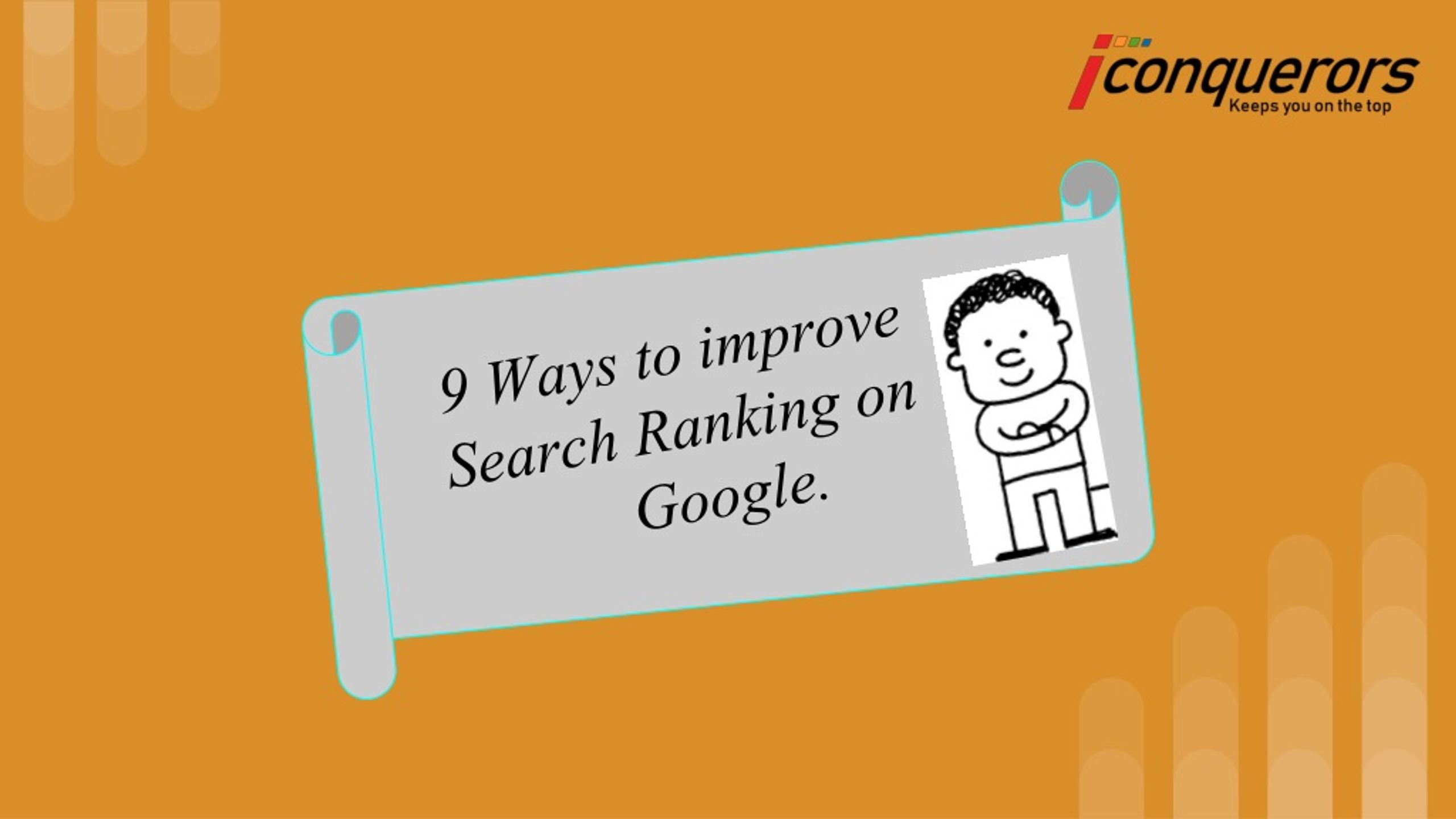Boost Google Search Rankings: The Ultimate Guide To Skyrocket Your Website Visibility
Are you tired of watching your competitors dominate the search engine rankings while your website lingers on page two or worse? Boosting Google search rankings is no longer an option—it’s a necessity. In today’s digital world, visibility means everything. If your site doesn’t rank high, you’re missing out on traffic, leads, and ultimately, revenue. But don’t worry, my friend, because I’m here to break it down for you in a way that’s easy to digest and packed with actionable insights.
Now, let’s be real. Ranking higher in Google isn’t rocket science, but it does require a solid strategy, consistency, and a bit of hustle. In this guide, we’ll dive deep into the nitty-gritty of how to boost Google search rankings, covering everything from SEO basics to advanced tactics that will help your site climb the ladder. Whether you’re a small business owner or a digital marketer, this article has got you covered.
By the time you finish reading, you’ll have a clear roadmap to improve your website’s visibility, attract more organic traffic, and dominate your niche. So, grab a cup of coffee, sit back, and let’s get started!
- Downloadhub Movie Your Ultimate Guide To Legal Streaming And Downloads
- Movierulz 5 Your Ultimate Destination For Latest Blockbusters And Movie Downloads
Table of Contents:
- Understanding Google Search Rankings
- Technical SEO: The Foundation of Success
- Content Optimization for Better Rankings
- Keyword Research: The Key to Unlocking Rankings
- Backlink Building: The Powerhouse of SEO
- On-Page SEO: The Game Changer
- Mobile Friendliness: Why It Matters
- User Experience: The Hidden Gem
- Local SEO: Boosting Local Rankings
- Measuring Success: Tracking Your Rankings
Understanding Google Search Rankings
Before we jump into the strategies, let’s take a moment to understand what Google search rankings actually mean. Simply put, rankings refer to the position of your website in Google’s search results when someone searches for a specific keyword or phrase. The higher you rank, the more likely people are to click on your site.
But here’s the kicker: Google doesn’t just rank websites based on random luck. It uses a complex algorithm that considers hundreds of factors, from the quality of your content to the speed of your website. And trust me, if you want to boost google search rankings, you need to understand these factors inside and out.
- Somali Wasmo Nairobi Telegram A Deep Dive Into The Digital Community
- Sarah Illustrates Divorce A Candid Look Into The Art Of Heartbreak
Now, let’s break it down further. There are three main types of rankings: organic, paid, and local. Organic rankings are what we’re focusing on here—these are the results that appear naturally without paying for ads. Paid rankings, on the other hand, are those sponsored listings at the top of the page. And local rankings are specifically for businesses that serve a specific geographic area.
Why Should You Care About Rankings?
Let me ask you a question: when was the last time you clicked on a result from the second page of Google? If you’re like most people, the answer is never. Studies show that the first page of Google gets over 90% of all clicks, with the top three results capturing the lion’s share. That’s why boosting your rankings is crucial for driving traffic and growing your business.
Technical SEO: The Foundation of Success
Alright, let’s talk about the backbone of any successful SEO strategy: technical SEO. Think of it as the foundation of your house—if it’s not solid, everything else will crumble. Technical SEO involves optimizing the technical aspects of your website to ensure it’s easily crawlable and indexable by search engines.
Here are a few key elements to focus on:
- Site Speed: Faster websites rank better. Period.
- Mobile Optimization: With more people using smartphones, having a mobile-friendly site is non-negotiable.
- Secure Connections: Switching to HTTPS not only improves security but also gives you a ranking boost.
- Clean Code: Avoid messy code that can confuse search engine crawlers.
Remember, technical SEO might not be as sexy as creating viral content, but it’s the foundation that supports everything else. If your site isn’t technically sound, all the fancy content in the world won’t help you rank higher.
Tools to Help You with Technical SEO
Don’t worry, you don’t have to go it alone. There are plenty of tools out there to help you with technical SEO. Some of my favorites include:
- Google PageSpeed Insights: Measures your site’s speed and provides actionable suggestions for improvement.
- GTmetrix: Another great tool for analyzing site performance.
- Yoast SEO: A plugin for WordPress that helps with on-page optimization and technical SEO.
Content Optimization for Better Rankings
Now that we’ve covered the technical side, let’s talk about the heart and soul of SEO: content. Content is king, as they say, and for good reason. High-quality, relevant content is one of the most important factors in boosting Google search rankings.
But what exactly makes content high-quality? Here are a few tips:
- Be Informative: Answer your audience’s questions and provide value.
- Use Engaging Language: Keep your readers hooked with interesting and conversational writing.
- Optimize for Keywords: Incorporate your target keywords naturally throughout the content.
- Include Multimedia: Videos, images, and infographics can make your content more engaging.
Remember, the goal is to create content that resonates with your audience while also appealing to search engines. It’s a delicate balance, but one that’s definitely achievable with the right approach.
Content Formats That Work
Not all content is created equal. Some formats tend to perform better than others when it comes to boosting rankings. Here are a few that have proven successful:
- How-to Guides: Step-by-step tutorials are always popular.
- Lists: People love lists—they’re easy to scan and share.
- Case Studies: Real-life examples can add credibility to your content.
Keyword Research: The Key to Unlocking Rankings
Keyword research is the backbone of any successful SEO campaign. Without the right keywords, your efforts to boost google search rankings will be like shooting in the dark. But where do you start?
First, identify your target audience and think about the terms they might use when searching for your products or services. Then, use tools like Google Keyword Planner, SEMrush, or Ahrefs to analyze these keywords and find opportunities.
When selecting keywords, consider the following:
- Search Volume: How often is the keyword searched?
- Competition: Can you realistically rank for the keyword?
- Relevance: Does the keyword align with your content and business goals?
Remember, long-tail keywords—those with three or more words—can often be more effective than broad, generic terms. They tend to have lower competition and higher conversion rates.
Implementing Keywords Naturally
Once you’ve identified your target keywords, the next step is to implement them naturally throughout your content. Avoid stuffing your pages with keywords—it’s a surefire way to get penalized by Google. Instead, focus on using keywords in key areas like:
- Title Tags
- Meta Descriptions
- Headings
- Body Content
Backlink Building: The Powerhouse of SEO
Backlinks, also known as inbound links, are one of the most powerful ranking factors in SEO. They signal to Google that other websites find your content valuable enough to link to, which boosts your credibility and authority.
But not all backlinks are created equal. Quality matters more than quantity. Aim for links from authoritative, relevant sites rather than spammy or low-quality ones. And remember, earning backlinks is a long-term strategy—it takes time and effort, but the results are worth it.
Here are a few strategies for building high-quality backlinks:
- Create Shareable Content: Infographics, research studies, and other visually appealing content tend to get shared and linked to more often.
- Guest Blogging: Write guest posts for other websites in your niche and include a link back to your site.
- Broken Link Building: Find broken links on other sites and suggest your content as a replacement.
Tools for Backlink Analysis
There are several tools you can use to analyze your backlink profile and identify opportunities. Some popular ones include:
- Ahrefs: Provides detailed backlink analysis and competitor research.
- Moz: Offers a comprehensive suite of SEO tools, including backlink tracking.
- SEMrush: Another powerful tool for analyzing backlinks and competitors.
On-Page SEO: The Game Changer
On-page SEO refers to the optimization of individual web pages to rank higher and earn more relevant traffic. It involves a combination of technical and content-related factors. Here are a few key elements to focus on:
- Optimized Title Tags
- Meta Descriptions
- Header Tags
- Image Alt Text
- Internal Linking
By optimizing these elements, you can improve your chances of ranking higher in Google. And the best part? On-page SEO is something you have complete control over.
Best Practices for On-Page SEO
Here are a few best practices to keep in mind when optimizing your pages:
- Use Unique Title Tags and Meta Descriptions for Each Page
- Incorporate Keywords Naturally Throughout the Content
- Use Descriptive Alt Text for Images
- Link Internally to Other Relevant Pages on Your Site
Mobile Friendliness: Why It Matters
With more and more people using smartphones to browse the web, having a mobile-friendly site is no longer optional—it’s essential. In fact, Google has made mobile-first indexing the default, meaning it primarily uses the mobile version of your site for indexing and ranking.
Here are a few tips to ensure your site is mobile-friendly:
- Use Responsive Design
- Optimize Images for Faster Loading
- Ensure Text is Readable Without Zooming
Remember, a mobile-friendly site not only improves your rankings but also enhances the user experience, which can lead to higher engagement and conversions.
Testing Mobile Friendliness
Google provides a free tool called the Mobile-Friendly Test that allows you to check how well your site performs on mobile devices. Use this tool regularly to ensure your site is up to par.
User Experience: The Hidden Gem
User experience (UX) is another crucial factor in boosting Google search rankings. After all, if your site is difficult to navigate or doesn’t provide value, visitors are likely to leave quickly, which can hurt your rankings.
Here are a few ways to improve UX:
- Make Navigation Simple and Intuitive
- Ensure Pages Load Quickly
- Provide Relevant and Engaging Content
Remember, UX is about more than just design—it’s about creating a seamless and enjoyable experience for your visitors.
Measuring User Experience
There are several metrics you can use to measure UX, including bounce rate, time on site, and conversion rate. Use tools like Google Analytics to track these metrics and identify areas for improvement.
Local SEO: Boosting Local Rankings
If you run a local business, local SEO should be a key part of your strategy. By optimizing your site for local search, you can attract more customers in your area and boost google search rankings.
Here are a few tips for improving local SEO:
- Claim and Optimize Your Google My Business Listing
- Include Local Keywords in Your Content

How To Boost Ranking In Google Search Engine by Amit on Dribbble

Top 3 Google Ranking Factors to Boost Your Rankings Hammersmith Support

PPT 9 Proven ways to how to improve google search ranking PowerPoint